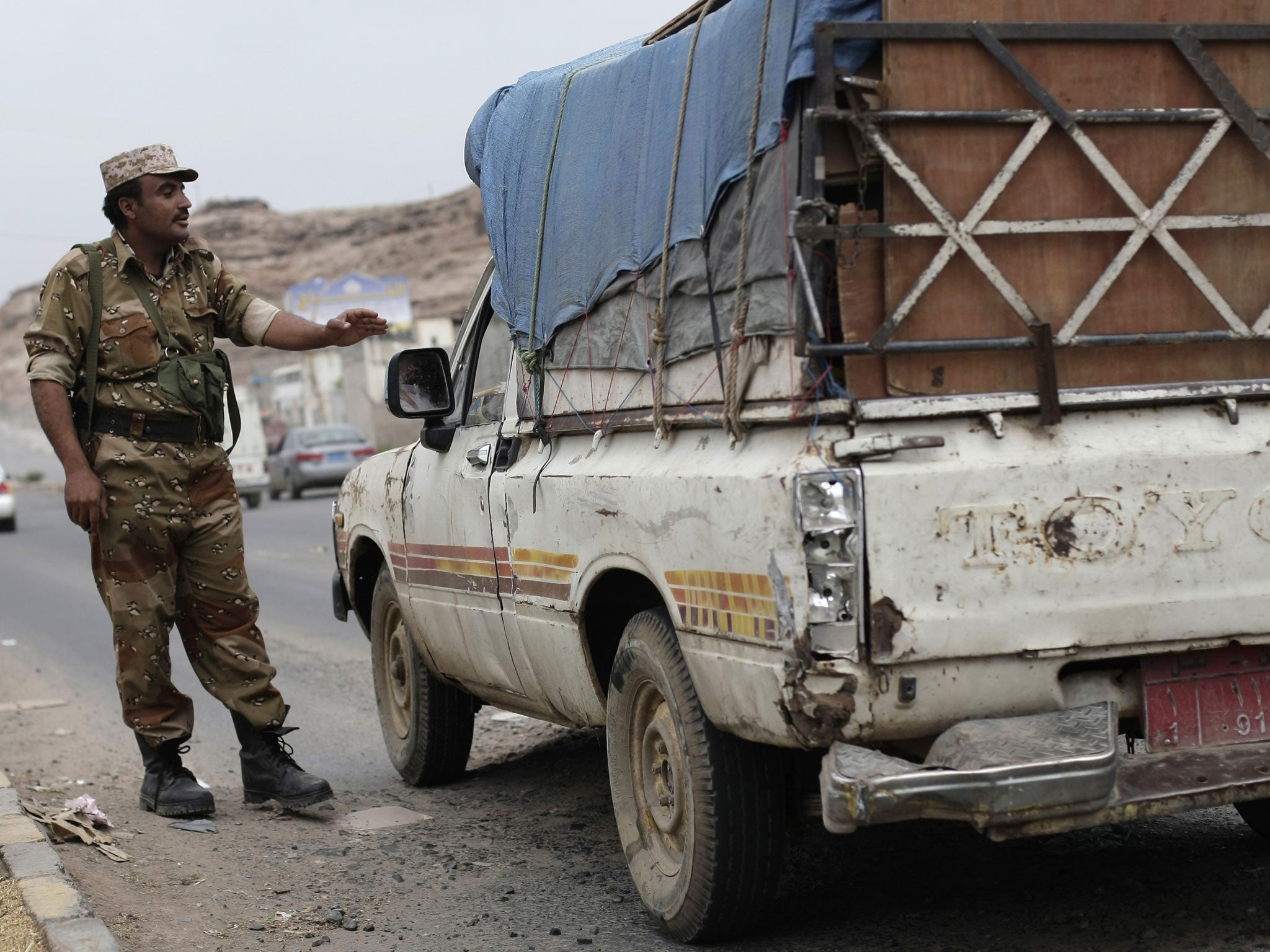Al-Qa’ida terror threat ‘is the most specific since 9/11’
Yemen the focus for intercepts that sparked international diplomatic alert

The alert that led to US diplomatic missions being closed down on three continents at the weekend is “one of the most specific and credible threats I’ve seen, perhaps since 9/11”, Congressman Mike McCaul, the House Homeland Security chairman, said yesterday. Speaking to CBS’s Face the Nation, Mr McCaul said that the US was on a “high state of alert”.
“I think the administration’s call to close these embassies... was actually very, very smart call – particularly in light of what happened in Benghazi, when warnings were not heeded in that case,” he said.
The alert was the result of intercepts of al-Qa’ida electronic communications in which Yemen, in particular, is believed to have been involved. Although the “chatter” about a possible attack was not linked to any individual, the US authorities are said to have been tracking the activities of Ibrahim al-Asiri, an experienced bomb-maker who has trained dozens of jihadists in the country on manufacturing explosive devices.
Yesterday America’s top military commander, General Martin Dempsey, the chairman of the Joint Chiefs of Staff, said the diplomatic closures were prompted by a “more specific” terror threat from al-Qa’ida than any encountered by officials in recent years, with intelligence showing a clear “intent … to attack Western, not just US, interests”.
His remarks came as ABC News quoted an unnamed US official as saying: “The part that is alarming is the confidence they showed while communicating and the air of certainty.” The second- in-command of Al-Qa’ida in the Arabian Peninsula (AQAP), Saeed al-Shihiri, a former Guantanamo Bay prisoner, died last month from injuries sustained in a US drone strike in Yemen last year and the group was reported to be seeking revenge.
AQAP has been involved in a number of plots in recent years to strike at US and Western targets. Al-Asiri, a Saudi national, has been credited with being the producer of the bombs in most of them, including the device worn by the “Underwear Bomber”, Umar Farouk Abdulmutallab. The latest threat led to the temporary closure of 21 US embassies and consulates across the Middle East and beyond. On Friday the State Department also issued a global travel alert, warning citizens of the heightened threat of an attack while the UK, France and Germany also closed their facilities in the Yemeni capital, Sana’a.
Meanwhile, Interpol issued its own alert on Saturday, asking member nations to exercise greater vigilance following a series of prison breaks in countries including Iraq, Libya and Pakistan. Interpol said that, with “suspected al-Qa’ida involvement in several of the breakouts which led to the escape of hundreds of terrorists and other criminals”, it was seeking the assistance of its members to work out if the prison breaks were “co-ordinated or linked.”
In Yemen, heightened concern about the prospect of an attack was reflected in the closure of roads around the US and British missions in eastern Sana’a. The security presence around the Presidential Palace and the Saudi Embassy was also increased.
Speaking to ABC’s This Week, General Dempsey said: “We are taking it seriously… yeah, there is a significant stream [of communications], and we’re reacting to it.” When asked if the threat was about a possible plot to blow up “an embassy, a consulate or something else”, he replied: “That part of it is unspecified. But the intent seems clear.”
Peter King, a Republican member of the House Homeland Security Committee, denied that the threat was hyped up to detract from revelations surrounding the NSA whistleblower Edward Snowden. “It’s absolutely crazy to say there’s any conspiracy here,” he said. “Just from seeing the intelligence, the government would have been totally negligent to not take the actions taken.”
Subscribe to Independent Premium to bookmark this article
Want to bookmark your favourite articles and stories to read or reference later? Start your Independent Premium subscription today.

Join our commenting forum
Join thought-provoking conversations, follow other Independent readers and see their replies